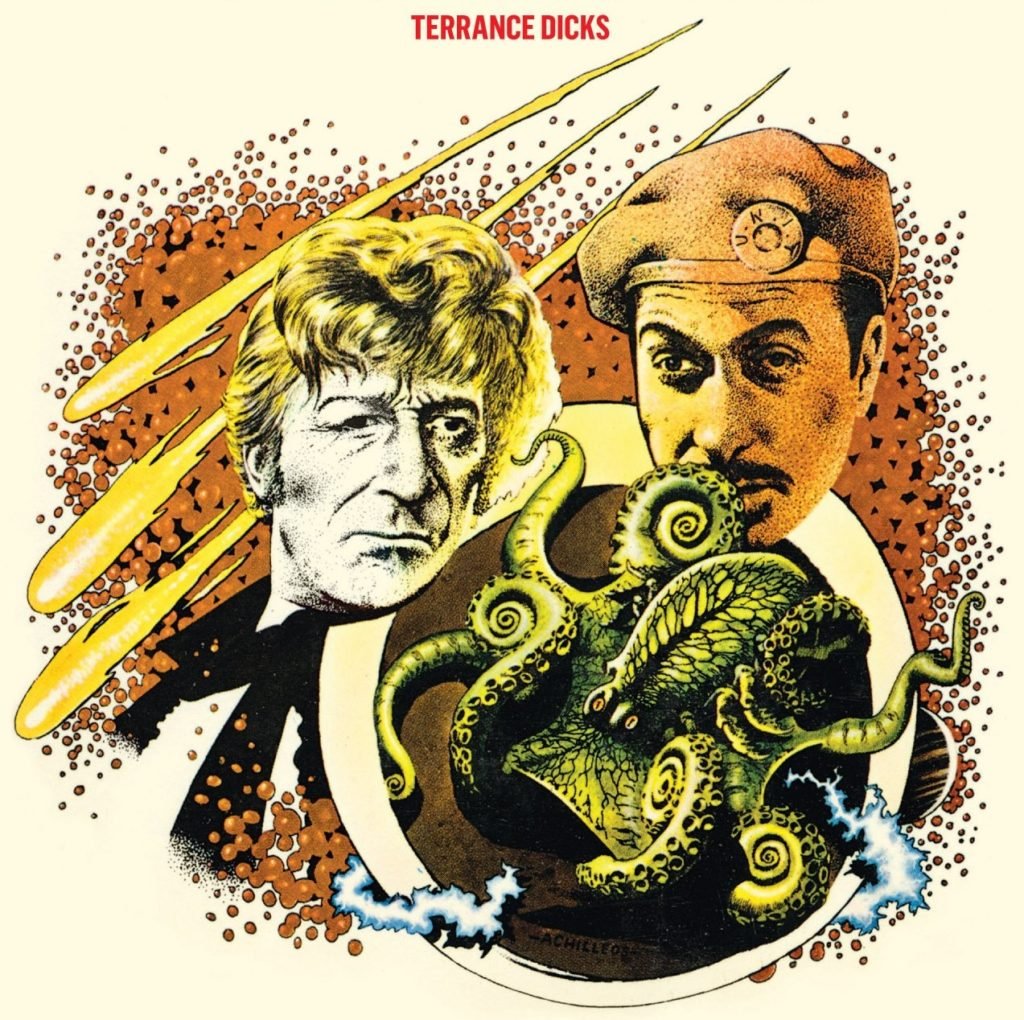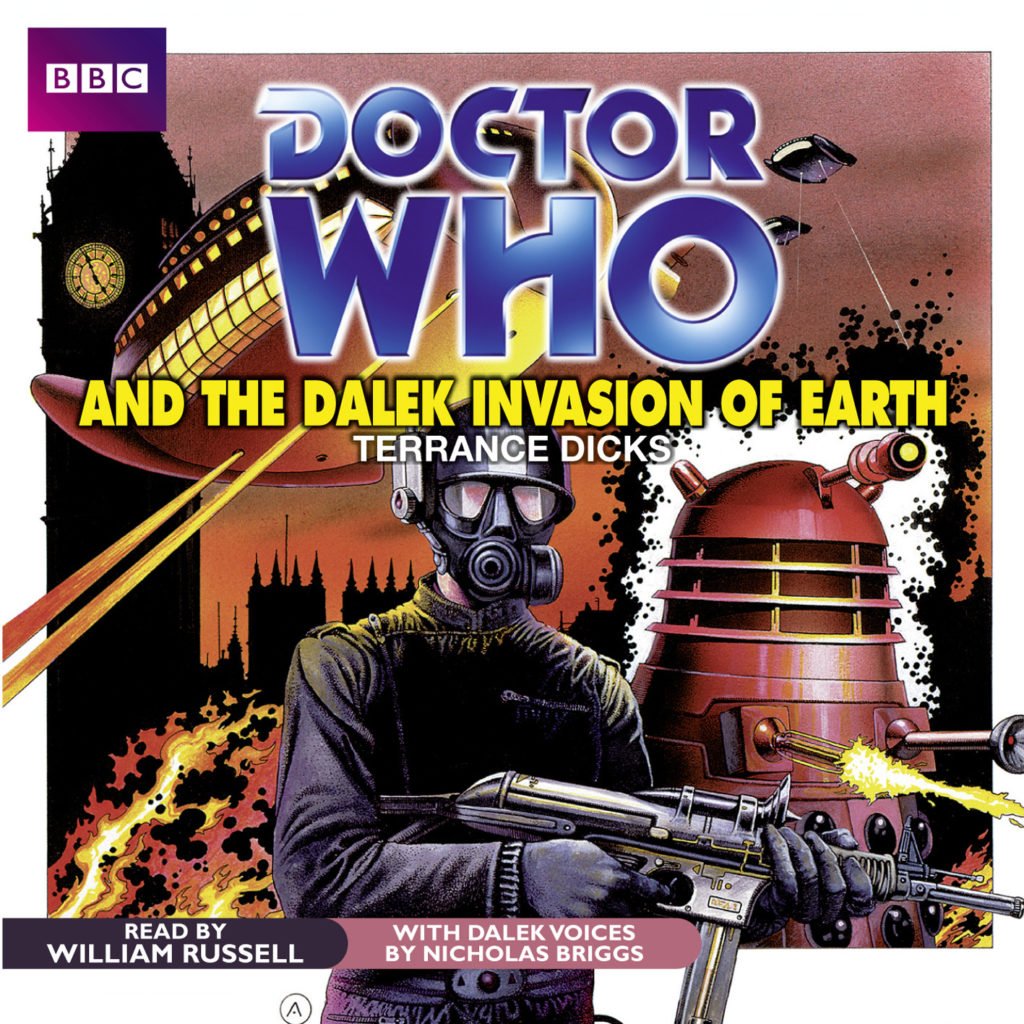When it comes to Doctor Who writers, there are those special few who really fuel our imagination with the power of their literary skill. One of those legends is Terrance Dicks who not only worked as the Script Editor on the series from 1968 to 1974, he created plenty of endearing elements of the show we all know and love today. Without him, we wouldn’t have the Time Lords, the Master, the idea that the TARDIS is indestructible, or the name of the Doctor’s home planet, Gallifrey. He has also been a huge champion for the show ever since.
But perhaps Dicks’ biggest contribution to the franchise came when he was approached by Target Books to novelise the Doctor Who serials, his first being Doctor Who and the Auton Invasion, a novelisation of the televised serial, Spearhead from Space. Dicks would go on to serve as an unofficial advisor to the range but ended up writing most of the books himself, if the original writers proved unavailable or didn’t want to do the work.

However, the importance of the Target Books lies in the fact that those books have taught generations to read and how fun it is to engage with a story on such a level. I remember being at junior school, forced to read books like Horrid Henry and Horrible Histories, and not enjoying a single moment of it. It wasn’t until I advanced to the highest reading level that I could choose any book that I wanted and to much bemusement, picked out Bram Stoker’s Dracula. That was the book that taught me it was fun to read and I haven’t looked back since; indeed, I’ve accumulated a large collection of the Target books over the years and loved every single one, and the way that Terrance Dicks captured the energy of each story and breathlessly transcribed that energy into the prose format.
Like Dracula for me, the Target novels were, for an older generation, the key that unlocked the door to the world of books and reading. You hear many stories of adults going into libraries or bookstores and picking up a Doctor Who tome and reading it cover-to-cover, over and over again. Many Doctor Who writers and production crew nowadays have cited Dicks’ work as the moment they knew they wanted to go into the industry. Neil Gaiman, one of the most prolific authors of our time, having worked with the likes of Terry Pratchett as well as for DC and Marvel Comics, creating characters like Lucifer and working on The Eternals, has said that he thanks Dicks for his work on the Target range.
Gaiman said that Dicks kick-started his interest in becoming an author and he was the reason Gaiman wanted to work on Doctor Who. He did so with 2011’s The Doctor’s Wife, which focused on the TARDIS, an element of Dicks’ writing he was famous for – I’ve always loved the way he made the TARDIS seem alive and the term, ‘Wheezing and Groaning’ has gone on to become the way to describe the TARDIS’ landings.
It also didn’t seem to matter which Doctor Dicks was asked to write for; he seemed to tackle each incarnation in the same way, creating an enjoyable conformity between each one, proving they are all the same character, while delighting in their little characteristics. Each Doctor felt authentic to their era and he also brought the various companions to life effortlessly, often allowing us to glimpse their different thought processes, telling us why the seemed to do perhaps daft stuff in television. Dicks wrote novels for the first five Doctors and one for the Sixth Doctor in the form of The Mysterious Planet, a book he wrote because his friend Robert Holmes had passed away a few years before.

One of my favourite books from Dicks is Doctor Who and the Auton Invasion because it is so different from the television serial. Spearhead from Space is an instant classic but the book is just as good, giving us some brand new moments that work in adding brand new layers to its televised counterpart. I really like the small passage about the Doctor, Liz, and the Brigadier trying to get to Channing’s factory to stop the Nestene Consciousness. We’ve got a really exciting moment here where the Doctor is driving a UNIT jeep through the streets of London as the Autons go on their rampage. Bullets whip past the jeep, nearly taking out Liz as well as some other UNIT personnel. It lasts only for one paragraph. But it was little differences like that I particularly like about Terrance’s work.
Speaking of differences, one of the funniest changes to come out of his work is in the pages of The Dalek Invasion of Earth in which Susan falls in love with the rebel David Cameron. In the television series, he was David Campbell and there is no reason why the surname changed in the book. In retrospect, with a former UK Prime Minister called David Cameron, it’s hard not imagine him trying to scramble through the ruins of a destroyed London. Actually, with the way things are going at the moment, that might not be too far from the truth, but its a funny little inconsistency all the same…
Dicks has also said that he always tried to fix problems with the stories in their television form. One of those problems was the UNIT dating issue. Sarah Jane says in Pyramids of Mars that she is from 1980, yet with the contemporary series set in the 1970s, things don’t add up. Even in modern UNIT stories, there are always little amusing asides about the problem that was something that Dicks tried to sort out and give some semblance of sense to.
It wasn’t just Doctor Who that Dicks wrote when he was working for Target though; in 1976, there was a trilogy of adventures called The Mounties. Then between 1979-83, Star Quest. Between 1976 and 2003, Terrance made a name for himself as a prolific children’s author, amounting a workload that lead to the creation of series like Jonathan’s Ghost, Magnificent Max, The Adventures of Goliath, and The Baker Street Irregulars among many others.

With Target wrapping up its Doctor Who output at the beginning of the Nineties, so it seemed that Dicks’ work was done. But that couldn’t be further from the truth as he would go on to write three books for the Seventh Doctor with companions Ace, Bernice, Chris, and Roz in the Virgin New Adventures range, two for the Eighth Doctor range from BBC Books, as well as writing for five different Doctors in the Past Doctor Range, all throughout the 1990s and the early 2000s. When the series came back, he contributed two novels to the Quick Reads range, both of which featured the Tenth Doctor and Martha Jones. He also wrote the novelisation of the debut Sarah Jane Adventures story, Invasion of the Bane.
I don’t think the importance of the Target novelisations can ever be underestimated. His work will always be remembered as some of the best in the children’s genre. He taught a generation of children to read and love books.
The other week, I found myself in a second-hand bookstore in Chichester where I brought two novels from the master himself: Day of the Daleks and The Talons of Weng-Chiang and found myself feeling very melancholy about the whole thing. I don’t think I’d thought about how big the loss of someone like Terrance Dicks was to the Doctor Who community.
I’ll leave you with this thought. With people like Steven Moffat, Mark Gattis, Neil Gaiman, and Chris Chibnall (among many other Doctor Who contributors from the modern era) saying that the Target range helped them decide to settle on writing as their future careers, I believe we can thank Terrance for the continued success of the show. Without the Target books, would we even have the show nowadays?
